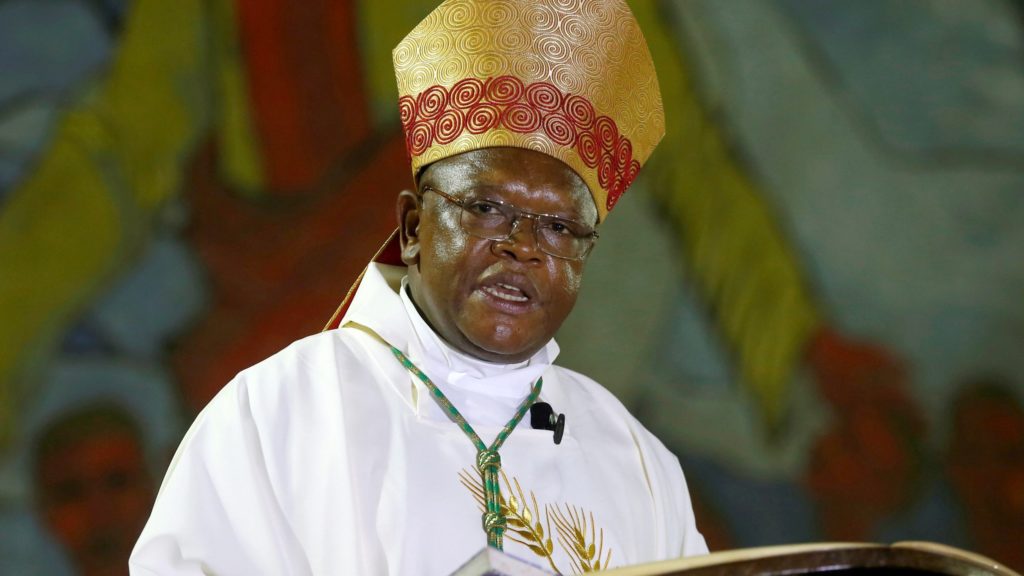In effect, the Catholic leadership of Africa has issued an emphatic, and unified, “no” in response to a Dec. 18 Vatican declaration authorizing the non-liturgical blessing of same-sex unions, indicating such blessings would cause confusion on the continent and will not be administered.
The reaction came in a Jan. 11 letter signed by Cardinal Fridolin Ambongo of the Democratic Republic of Congo, president of the Symposium of Episcopal Conferences of Africa and Madagascar (SECAM), saying it was based on feedback from the various bishops’ conferences across the continent.
While insisting that the episcopal conferences of Africa will continue to enjoy communion with Pope Francis, Ambongo said African Bishops nevertheless “believe that the extra-liturgical blessings proposed in the declaration Fiducia Supplicans cannot be carried out in Africa without exposing themselves to scandals.”
The letter states that Fiducia Supplicans has “sown misconceptions and unrest in the minds of many lay faithful, consecrated persons, and even pastors, and has aroused strong reactions.”
Emphasizing that the Catholic Church’s teaching on sexuality and marriage has not changed, in that it still regards marriage as a union between a man and a woman in Holy matrimony for the purpose of procreation, Ambongo said “African Bishops do not consider it appropriate for Africa to bless homosexual unions or same-sex couples because, in our context, this would cause confusion and would be in direct contradiction to the cultural ethos of African communities.”
“The language of Fiducia Supplicans remains too subtle for simple people to understand,” he said. “Furthermore, it remains very difficult to be convincing that people of the same sex who live in a stable union do not claim the legitimacy of their own status.”
In comments to Crux, Archbishop of Andrew Nkea of Bamenda in Cameroon, president of the country’s bishops’ conference, described same-sex unions as “witchcraft.”
“What on earth would two men or two women be doing together that warrants my blessing?” he said. “It’s an abomination.”
“As a pastor, I interact with homosexual couples. I interact with homosexual individuals. We don’t judge them, but why do we have to bless them,”? Nkea asked.
“If I am talking to a homosexual couple, it is in view of conversion. It is in view of seeing how they can better their lives,” the archbishop said. Blessing them, whether liturgical or not, he said, would be “tantamount to endorsing that relationship.”
Ambongo called on African clergy to continue giving pastoral assistance to all its members and encouraged the clergy to “to provide welcoming and supportive pastoral care, particularly to couples in irregular situations.”
“African bishops’ conferences emphasize that people with a homosexual tendency must be treated with respect and dignity, while reminding them that unions of persons of the same-sex are contrary to the will of God and therefore cannot receive the blessing of the Church,” the SECAM president said.
He echoed the Church’s teaching that homosexual acts are “intrinsically disordered” and “contrary to natural law.”
“The Church is against homosexuality for the simple reason that it is unnatural,” said Archbishop Cornelius Fontem Essua of Cameroon, now retired, in comments to Crux.
Opposition to gay relationships in Africa is also reflected in state laws. Of the 55 African states, 33 have laws criminalizing same-sex relationships, punishable by various prison sentences. In 2023 alone, six states (Kenya, Ghana, Namibia, Niger, Tanzania and Uganda) took steps to tighten those laws.
In Uganda, for instance, an Anti-Homosexuality Act passed in May 2023, includes the death penalty for ‘aggravated homosexuality.’ This includes sex with minors or HIV infected persons. It penalizes the ‘promotion of homosexuality’ with 20 years’ imprisonment.
The Vatican has sought to lower the temperature, explaining that the non-liturgical blessing of same-sex relations does not mean the Church validates those unions.
In a five-page document released Jan. 4, the Dicastery for the Doctrine of the Faith said it understood that some bishops’ conferences needed time to reflect on the import of the document, but insisted that it was vital that all conferences respect the Pope’s decision.
“There is no room to distance ourselves doctrinally” from the pope’s declaration about blessings, the letter said, and added that the document can’t be considered as “heretical, contrary to the tradition of the Church or blasphemous.”
“Prudence and attention to the ecclesial context and to the local culture could allow for different methods of application,” the letter states, but insisted that it should not boil down to “a total or definitive denial of this path that it proposed to priests.”
Ambongo said SECAM will “continue to reflect on the value of the general theme of this document, apart from just blessings for couples in an irregular situation, that is to say, on the richness of spontaneous blessings in everyday pastoral care.”
He urged Christians communities “not to allow themselves to be shaken” by the development.

